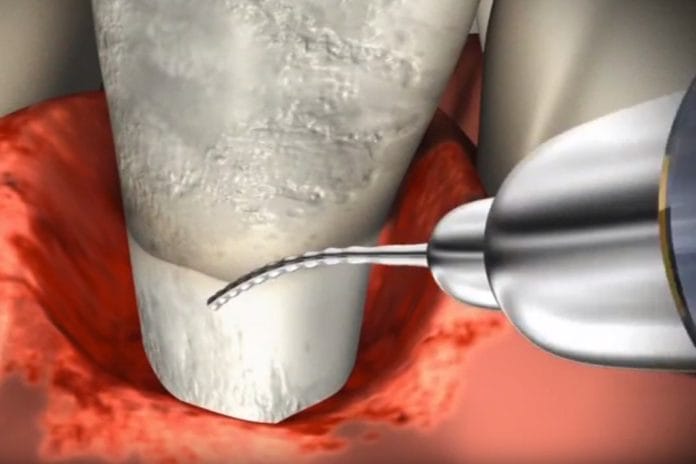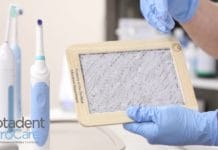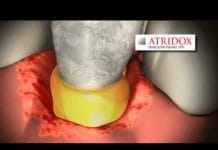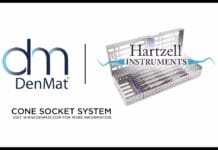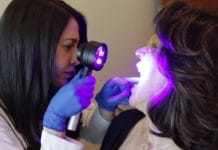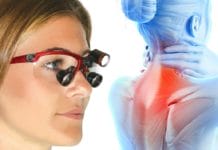Test Your Locally Applied Antibiotics Knowledge!
Disclosure: This quiz is sponsored content from DenMat as part of our sponsored partner program.
Let's test your locally applied antibiotics knowledge!
ATRIDOX is a subgingival controlled-release product that contains doxycycline. Once inserted into the subgingival pocket, the extruded liquid solidifies which allows for a controlled release of the drug for seven days.
ATRIDOX is a locally applied antibiotic for use in the treatment of periodontal diseases. The ATRIDOX treatment uses doxycycline, a broad-spectrum form of tetracycline, to reduce bacteria levels in subgingival areas. To use, the dual-syringe system must first be coupled, mixed together, and then expressed into the pocket until the liquid reaches the top of the gingival margin. Upon contact with crevicular fluid, the liquid solidifies which subsequently allows for a controlled release of doxycycline for seven days.
Den-Mat Holdings, LLC (2015). Atridox Product Overview & Clinical Highlights. Retrieved from https://www.denmat.com
Which of the following products is not considered a locally applied antibiotic for use in treating periodontal pockets?
Periodontitis is associated with gram-negative organisms as well as other types of pathogenic shifts in oral bacterial flora. Many products and therapies have been created in an attempt to address these shifts including mouth rinsing, irrigation, scaling and root planing, and use of lasers. Local delivery of controlled release drugs has proven to be an effective adjunct method at increasing gingival health, and can sometimes be used in place of traditional scaling and root planing. Current locally applied antibiotics include chlorhexidine chips, doxycycline gel, and minocycline microspheres.
Ciancio, S.B. (2012). Local Delivery of Agents to Treat Periodontal Disease. Retrieved from https://www.metdental.com/prov/execute/home
Which of the following are considered effective at treating peri-implantitis?
With the increased use of dental implants comes a rise of implant-related conditions. One notable condition is peri-implantitis, which can often result in a “failing” implant. Mechanical debridement techniques such as scaling and root planing have shown to substantially improve gingival infection. Additionally, the use of locally applied antibiotics, surgical treatment, and even occlusal therapy have each shown to have a positive effect on peri-implantitis.
Buchter A., Meyer U., Kruse-Losler B., Joos U., Kleinheinz J. (2004). Sustained release of doxycycline for the treatment of peri-implantitis: randomized controlled trial. British Journal of Oral and Maxillofacial Surgery. 42:439-444.
The first commercially available local delivery product in the United States consisted of a gel which contained metronidazole, an antibiotic that is used to treat a wide variety of infections.
False. The first commercially available local delivery product in the United States consisted of a fiber that contained tetracycline and was a result of research that began in the 1970s. This fiber was inserted and “packed” into the subgingival sulcus. Today, locally applied antibiotics usually consist of an antimicrobial or antibiotic in addition to a drug polymer that allows the product to provide extended drug release.
Ciancio, S.B. (2012). Local Delivery of Agents to Treat Periodontal Disease. Retrieved from https://www.metdental.com/prov/execute/home
ATRIDOX is considered a “stand alone therapy” for periodontitis. A “stand alone therapy” for periodontitis is defined as any therapy that is at least _____ as effective as scaling and root planing.
ATRIDOX meets the standard of being a “stand alone” therapy for periodontitis. A “stand alone therapy” for periodontitis is defined as any therapy that is at least 75% as effective as scaling and root planing. According to DenMat, a distributor of ATRIDOX, two well-controlled, nine-month clinical trials were completed using 831 patients who presented with chronic adult periodontitis. Treatment was administered to pockets measuring 5mm or more that had bleeding on probing. Patients received a second treatment four months later. After 9 months, data was gathered on attachment levels, pocket depth, and bleeding on probing. At this point, data was collected and it was proven that ATRIDOX met the standard of being a stand alone therapy for periodontitis.
Den-Mat Holdings, LLC (2015). Atridox Product Overview & Clinical Highlights. Retrieved from https://www.denmat.com

